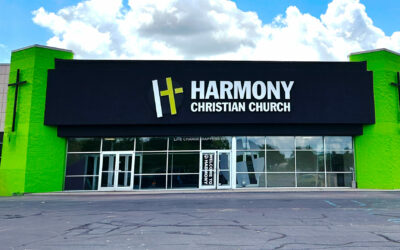When most people think about Christian Education, they immediately jump to seminary. In their mind the two are linked. If you want to receive a Christian education then you need to go to seminary. They’re not entirely wrong, because attending a seminary or other place of Christian higher learning is certainly a great place to gain such an education. The question then becomes how we should understand the relationship that institutions of Christian higher education should have in the process of discipleship. As someone who has a degree from an institution that is one such place of learning, I can say that it has proven invaluable to me in my ministry pursuits. That being said, how valuable is such an education for non-clergy? Is attending a seminary exclusively the way to gain a deeper knowledge and understanding of scripture or are there better ways to go about going deeper? The way you answer that question depends greatly on how you view the relationship between churches and seminaries.
The first thing we must consider is the way that seminaries and institutions have been traditionally viewed by the church. In early church history, higher education and the church were intimately connected. Many of the most prestigious Ivy league schools originated as religious institutions. It seems recently that the attitude of the church towards higher education has shifted dramatically. “…it is not an overstatement to say that churches across the United States lack an understanding or an appreciation for Christian higher education.” [1] It is becoming more and more common now that ministers serving in churches have no formal education in a Christian institution and hold no degree in any area of study related to ministry. As a result, it appears that congregations are becoming less and less scripturally literate. Since these ministers are not formally educated, the congregation fails to understand the benefits of such formal instruction. This shift is certainly not a positive one as it would be difficult to argue how learning more about the Church, its history, theology, and scripture is a bad thing.
The other issue that prevents most people from pursuing a formal education in a Christian institution of higher education is simply the cost, both time and money. Earning a degree takes an inordinate amount of time to complete, meaning that much of this theological knowledge is inaccessible for many people. To make matters worse, this only increases the divide between the wealthy and poor in our churches. “The growing gap between rich and poor will make a difference, even as people adapt to multilingual and multiracial contexts.” [2] Because those who are wealthier usually have more time and certainly more free capital to pursue a formal education or even just audit classes at Christian institutions of higher education, they are usually the ones who are more likely to have a better understanding of scripture and theology. It’s certainly an uncomfortable truth that something that is created to help bolster the church with sound doctrine and theology is also, albeit unintentionally, increasing the divide between rich and poor. The advent of remote learning technologies does little in bringing down these barriers. The lower overhead cost of such institutions does allow them to lower tuition and other fees, but it still leaves out students in areas that are underserved as far as internet connectivity goes or who lack the technology required to participate in class. It also does not change the time requirement for such courses.
Christian higher education as it stands right now provides a great way for those with the means to pursue education, but this is really only beneficial for ministers. The cost and time that the traditional model of Christian higher education demands is simply far more than the average church goer can provide, and they are the ones most desperately in need of sound theological and doctrinal instruction. The problem is that the traditional model that these institutions follow does not align well with what the local church is doing. These institutions need to see themselves as partners of the local church. “Christ-centered institutions, while not churches, are an extension of the churches, the academic arm of the kingdom of God.” [3] The role that institutions of Christian higher education plays in the kingdom of God is extremely important, but the traditional model of higher education is preventing them from participating as much as they should. Instead, a new model seems to be emerging that allows these institutions to partner more directly with the church to help reach the average church goer.
The local church has a huge problem with biblical illiteracy. When one church, Forest Park Church in Waldorf, Maryland, began evaluating the average Biblical competency among their congregation, they were shocked by the results. “Certain Christian teachings, like the doctrine of the Trinity and the idea of Jesus as fully God and fully man, were new concepts for some.” [4] There is a great need in the local church for programs that can reach their people with sound theological instruction and doctrine and Christian institutions have difficulty reaching everyday church goers. This is where these Christian institutions of higher education can partner and serve the local church. In fact, many churches and seminaries have done just that. Christianity Today recently published an article about how these institutions and churches have been seeing enormous success through such partnerships. The example given in the article is about a program run out of churches in Arizona called Surge. This program is built from the ground up around rigorous academic study, but it is much more accessible than attending a formal theological institution. The cost to attend is free and the time commitment is once a week plus time outside class to read the materials for the week. They have even partnered with Covenant Theological Seminary to offer support and accredited degrees. [5] This model has brought down barriers and resulted in believers at these churches having a deeper understanding of scripture, which is essential to discipleship development.
Christian institutions of higher education play the important role of being the protectors and instructors of sound Christian doctrine. Their largest problem is accessing this doctrine is extremely difficult for most people. On the other hand, local churches desperately need to instruct their people about such doctrine. By finding new ways of partnering together, these institutions of higher education can better fulfill their role in making disciples by reaching the average church goer. Maybe it’s time that we start asking our churches to find ways to provide this desperately needed instruction.
[1] Dockery, “Change, Challenge, and Confession,” 298.





0 Comments